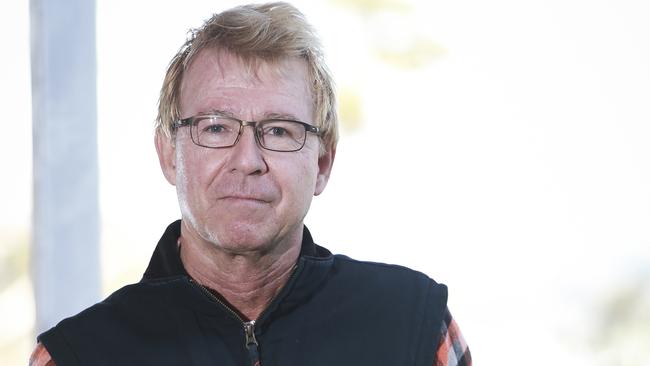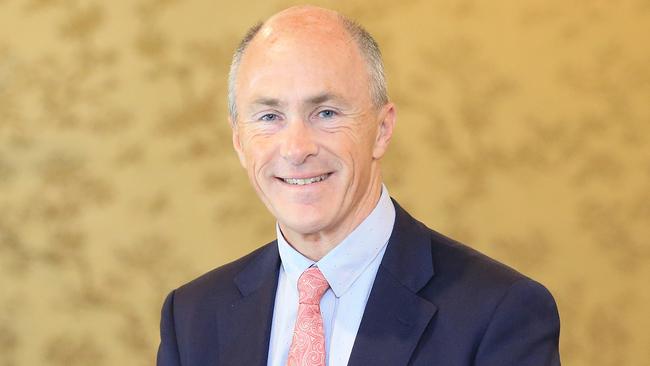What a recession would mean for Australia with more interest rate hikes
Many Aussies and finance experts are now talking about the possibility of the country going into a recession. We asked two leading economists what it would mean for you.
National
Don't miss out on the headlines from National. Followed categories will be added to My News.
Australia could be plunged into severe financial stress and see unemployment rates rise if the country plunges into a recession, according to lead economists.
The Reserve Bank Australia (RBA) increased interest rates on Tuesday for the sixth successive month, hiking the cash rate by 25 basis points to 2.60 per cent.
The bump in interest rates will see repayments on a $500,000 mortgage increase by$76.45 a month. A $1 million mortgage will cost an extra $152.90 a month.
But the RBA is also dealing with a global economy already experiencing shockwaves.
News Corp spoke to chief economists from AMP Shane Oliver and Craig James from CommSec about what a recession would mean for Australia and what to expect.
WHAT IS A RECESSION?
A recession is generally when a country's economy declines, according to the RBA website.
Economists can’t label it a recession if the Australian stock market has one bad day – you need two successive quarters where Australia's gross domestic product (GDP) has fallen.
WHAT IS THE DIFFERENCE BETWEEN RECESSION AND DEPRESSION?
Just like a recession, there is no single definition of a “depression”.
However, a depression can be thought of as a much bigger version of a recession, both in terms of scale and duration.
The scale and duration of a depression means that there are often negative economic outcomes that are experienced in many countries around the world, so some definitions of depression say that it is a severe recession that occurs in one or more economies.
WHY ARE EXPERTS TALKING ABOUT A RECESSION IN 2022?
AMP chief economist Dr Shane Oliver said there are two main reasons experts are talking about a recession at the moment.
“Firstly, the global backdrop is deteriorating as a result of the energy crisis in Europe like Ukraine and significant rate hikes from various central banks,” Dr Oliver said.
“And so we‘ve seen a sharp downgrading of the global growth forecasts.
“China has also slowed down substantially and of course we saw sharp pulls in share markets and commodity to commodity prices, a little picture often associated with recession.
“And then secondly, we've seen multiple rate hikes from the Reserve Bank, which runs the risk of recession in Australia as well.”
CommSec’s Craig James added the talk of a recession was due to interest rates “being lifted aggressively to deal with a surge in inflation”.
“Inflation fails to be brought under control and rates are lifted to levels that induces a recession,” he said.

IS THERE A CHANCE AUSTRALIA COULD GO INTO A RECESSION?
Dr Oliver warns a recession is “very likely” if the Reserve Bank continues accelerating rate hikes in its mission to tame inflation.
“Historically, interest rate hikes in the US often lead to recessions … There is certainly a risk and that has gone up,” he said.
“So it's not just us raising rates, other countries are too and you combine that with the energy crisis, it sort of adds to the risk of recession.”
However, he said avoiding a recession will largely depend on how “aggressive” the RBA will get in raising interest rates.
“If they can call it fairly soon, then we might be able to avoid it,” Dr Oliver said.
“But if we keep raising rates at this rate then the danger is we'll end up over tightening and we’ll have a recession.”
While CommSec does not expect a recession in Australia, Mr James said there was a chance of it occurring.
“Again because rates are rising and there is the risk that rates may rise too high, too quickly,” he said.
“At the outset it’s important to stress that there is a substantially higher risk of recession outside Australia.
“The last recession apart from Covid was over 30 years ago — other countries have gone into recession over time but not Australia.”
WHAT WOULD BE THE MAIN TRIGGERS FOR A GLOBAL RECESSION?
The cash rate target has risen 2.25 percentage points in the last five months, and Dr Oliver said interest rate hikes are one of the main triggers which will lead to a “significant tightening in financial conditions” and subsequent recession.
“Before the pandemic started, interest rate was around 0.75 per cent and that could be around 2.85 per cent after today, which is almost four times above where it was prior to the pandemic,” he said.
“So that's a massive increase in interest rates well above where we were pre-pandemic and that obviously takes money away from people and it costs more for homeowners to get into the property market and to build new properties.”

HOW LONG WOULD A RECESSION LAST?
While it’s hard to give an exact timeline, experts say a recession can range from six months to two years.
Dr Oliver said for Australia, a recession will see more added financial stress on Aussies as well as high interest rates “combined with higher unemployment”.
“Well, in Australia‘s case that sort of post war era I guess it could go up to two years. But the shortest one was the pandemic recession, which was in the first half of 2020.
“And while I think a recession would probably be brief, it depends how much damage was done by higher interest rates and how high my base case would be in a relatively short and shallow recession.
“But that’s if central banks pull back in time quickly enough.”
While Elon musk has predicted a recession in the US would last for 18 months, Mr James said: “It is far too speculative to talk of length of recession just as recession is far from certain in the US or Australia.”
WHAT WOULD IT MEAN FOR THE AUSTRALIAN STOCK MARKET?
Mr James said the stock market is “forward looking” and has “already assumed a slowdown in the economy”.
“If a recession does happen then the sharemarket will then start factoring in recovery,” he said.
RBA raises interest rates to 2.6 per cent amid recession fears
WHAT EFFECT WOULD IT HAVE ON OUR LABOUR MARKET?
Dr Oliver said the extent of the rise in the unemployment rate “depends on how deep the recession is”.
“With little luck of recession, the rise in unemployment may only take us to say 4.5 per cent,” Dr Oliver said.
“Eventually it could lead to a renewed slowing in wages growth because at the moment wages growth is picking up because it's very tight labour market.
“But if the labour market weakens with a recession if we have one then that would mean a renewed slowing in wages growth. But it probably won't come out until later next year.”
Mr James added: “If businesses do fail then people can lose jobs. But note the unemployment rate is at 50-year lows.”
WHAT IMPACT WOULD A RECESSION HAVE ON THE HOUSING MARKET?
Australian property prices are continuing to cool in response to rising interest rates and higher living costs.
Mr James said in a recession, housing prices ease in response to higher interest rates.
“But when the slowdown or recession achieves the goal of getting inflation under control the rates fall and home prices recover,” he said.
Dr Oliver said a recession could see homeowners struggling to pay off their mortgage as well as a sharp decline in demand for property.
“The prices are already off at about 5 per cent nationally and 9 per cent in Sydney, which has mainly been driven by weaker demand as a result of higher interest rates,” Dr Oliver said.
“But if we started to see people coming in struggling to make their payments.
“And the massive increase in interest rates well above where we were pre-pandemic obviously takes money away from people and it costs more for homeowners to get into the property market and to build new properties.
“It also takes lending power away from those with the mortgage because of the higher interest rates.”
WHAT SHOULD INVESTORS DO IN A RECESSION?
Mr James warns investors to carefully assess their financial situation but keep in mind that sharemarket investments are longer-term investments
“History shows the worst option is to panic,” he said.
“Best thing to do is to take on financial advice if necessary.”
Originally published as What a recession would mean for Australia with more interest rate hikes





